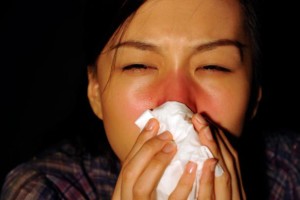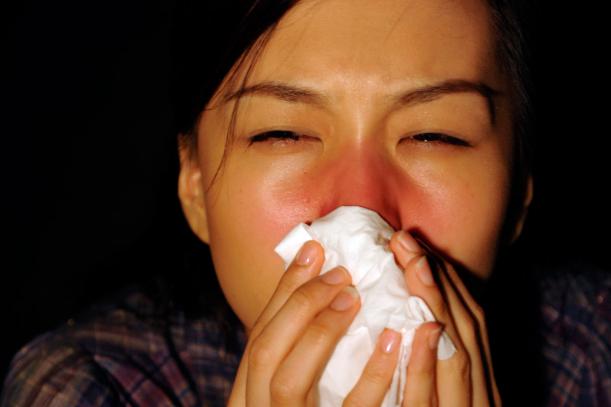For Kim Su-yeon, a 36-year-old self-proclaimed germophobe, Seoul at this time of a year is a nightmare.
Before stepping outside, she always makes sure she has a sufficient supply of antibacterial wipes and hand sanitizers in her bag.
But such precautions still seem inadequate in keeping her germ-free, especially when strangers near her start to cough without covering their mouth.
“I saw a lady who clearly had a contagious cold, coughing, sneezing and wiping her nose with her hand in the subway. I immediately stood up and moved to a different part of the subway,” Kim said, expressing frustration at ignorance about etiquette in public places.
In the face of the worst seasonal flu sweeping the nation, Kim’s complaint seems to be shared by an increasing number of South Koreans.
Doctors, too, stress that simple etiquette can be most effective in preventing the spread of the contagious seasonal flu virus. The failure to properly educate students and follow preventive steps may have been behind the worst flu outbreak in decades, they said.
Read also: 5 natural remedies for the cold and flu
According to the Korea Centres for Disease Control and Prevention, a record high number of young patients were diagnosed with flu last week — 152 flu cases per 1,000 students aged 7-18. The government began monitoring the flu in 1997.
Dr. Kim Yang-hyun of the Anam Hospital of Korea University Medical Center said flu etiquette is relatively less known or followed by Koreans, compared to people in other countries.
“Did you know that you should sneeze into your elbow, not your hand?” he asked.
“Also, not many in South Korea can decide for themselves whether or not they should go to work or school when they sneeze and cough,” he added.
Last year, South Korea had a major outbreak of the Middle East respiratory syndrome that caused 38 deaths.
The state-run KCDC, in response, came up with antiviral treatment guidelines that include educating children and adults to sneeze into their elbows.
But such information is still not well known among the public or taught at schools, experts highlighted.
Sneezing into one’s elbow can prevent some 3,000 infectious droplets from being sprayed onto hands, which could spread germs by holding or passing frequently touched surfaces such as door handles and tables.
Read also: Singapore’s first painless flu vaccine
“Koreans tend to campaign or follow health care steps only when a serious disease outbreaks,” a medical resident at Seoul National University Hospital told the Korea Herald on condition of anonymity.
“Simple but fundamental preventive steps can keep colds away. All we need to do is to follow simple manners on a daily basis, which takes on a whole new meaning when their intent is to protect your health and the health of those around you,” he added.
In other developed countries like the US, health authorities have been campaigning since 2009 to teach elementary school students to properly cover their mouths when they cough through the distribution of flyers and posters about health care, under the slogan “Cough = Elbow.”
South Korean health authorities said Tuesday that they had suggested schools start their winter vacation earlier than scheduled and immediately stop students from attending school.
Doctors said the disease, the influenza A virus subtype H3N2, is unlikely to develop serious complications, such as pneumonia, if patients receive timely treatment.
“Although the flu virus this time is accompanied by symptoms such as headaches and muscle pain — rare for other types of seasonal flu — the disease can be cured when the patients visit the doctor immediately and take antiviral drugs like Tamiflu,” said Dr. Kim Gyu-yeon of The Severance Hospital of the Yonsei University Health System.
Getting a vaccination, either a flu shot or a nasal-spray type vaccination, is another simple method to reduce chances of catching cold.
“Those who study or work in confined spaces are particularly susceptible to the highly contagious illness, since people with the flu can spread it to others up to about 2 meters away, mainly by droplets made when they cough, sneeze or talk,” said Kim.
While vaccines show efficacy after two weeks, it is still not too late to get a vaccination now, as the cold weather is to continue until February next year, he added.






